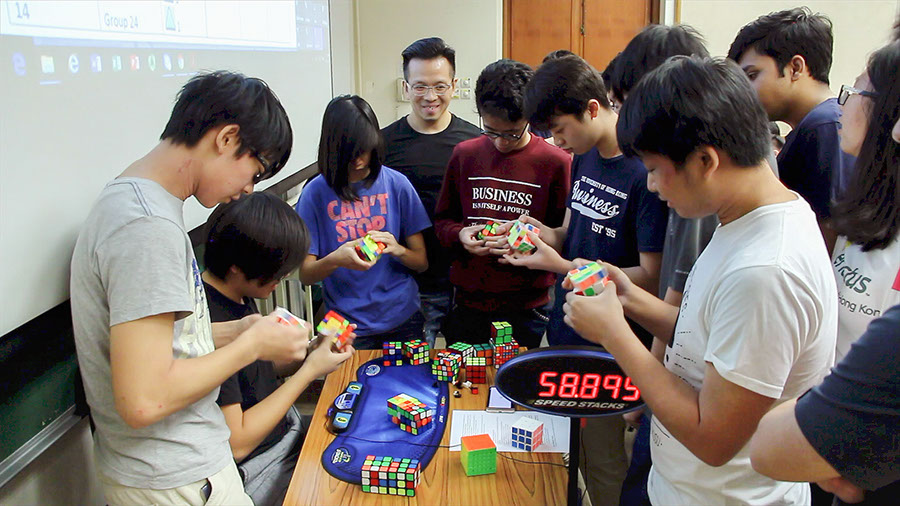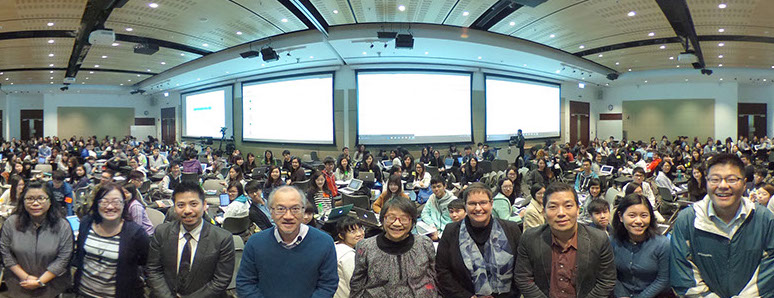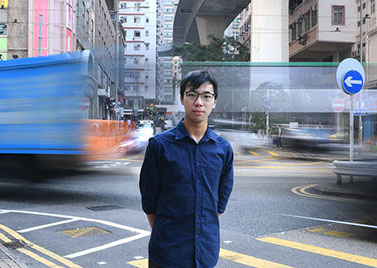Vision and Mission
Message from the
President and
Vice-Chancellor
Teaching and Learning
Research and Innovation
Knowledge Exchange and
Technology Transfer
The University Profile
An Extract from
the University’s
Annual Accounts 2016-17
Officers of the University
The Court
Vision and Mission
Message from the
President and
Vice-Chancellor
Teaching and Learning
Research and Innovation
Knowledge Exchange and
Technology Transfer
The University Profile
An Extract from
the University’s
Annual Accounts 2016-17
Officers of the University
The Court

The Review 2017

PDF Version
Past Issues
E-Book
TEACHING AND LEARNING
TESTING NEW WATERS
Online content and new technology are becoming ever more prominent in university education with the advent of flipped classrooms, blended online and face-to-face sessions, and other alternatives to standard lectures. Some teachers have been quick to grasp the opportunities and have developed award-winning programmes. Others get help from HKU’s Technology-Enriched Learning Initiative (TELI). Students are also using technology in innovative ways to discover new knowledge.

Professor Ricky Kwok Yu-kwong (centre, back) oversees students using algorithms to solve the Rubik’s cube as part of his gamification of learning syllabus.
TELI Vision
TELI supports and promotes e-learning across HKU, for example by developing games and apps with teachers and filming content for courses. Professor Ricky Kwok Yu-kwong, the Associate Vice-President (Teaching and Learning), oversees TELI and he has taken its approach to innovative teaching to heart. In 2017 he ran a summer-time Common Core course, Everyday Computing and the Internet, that combined the flipped classroom and Mainland experience.
Students began by spending three weeks studying lectures and other content online. Then they spent two intensive weeks at Peking University applying what they learned in a classroom alongside Mainland students.
Peking University also developed a similarly-designed course, Innovative Product Engineering Process, that HKU students could enrol in. “Both courses ran very successfully and I see them as a prelude for other courses to come,” Professor Kwok said, including a collaboration with local universities to produce 10 shared online courses. He also hopes to experiment with offering a similarly structured course during term-time in 2018–19.

Award-winners Dr Chan Lap-ki (fourth left) and Dr Susan Bridges (fourth right) pictured during the Instructional Unit on Cancer, which was part of the Inter-Professional Team-based Learning Programme in March.
Award Winners
Two entries from HKU won bronze awards at the international Reimagine Education Awards organised by Quacquarelli Symonds and Wharton School of the University of Pennsylvania to celebrate innovation and technology for education. The awards were handed out in December 2016.
A programme led by Dr Chan Lap-ki of the Li Ka Shing Faculty of Medicine and funded by the University Grants Committee won the Bronze Discipline Award (Health Sciences). About 1,000 students from complementary health programmes at HKU and Hong Kong Polytechnic University come together in small groups to tackle complex clinical scenarios, using technology and face-to-face learning to communicate. The aim is to plant the seeds for effective collaboration among different health professionals from the early days of their training.
A cross-institutional and international project to study progression in problem-based learning (PBL) across three health sciences curricula won the Bronze Regional Award (Asia). Led by Dr Susan Bridges of the Faculty of Education and Centre for the Enhancement of Teaching and Learning, the ethnographic project was funded by the Research Grants Council to study interactions during face-to-face tutorials using mobile devices and the Internet to provide valuable data on undergraduate learning in virtual and blended spaces.
Making a Noise
A fourth-year BA(UrbanStud) student used geographical
information systems (GIS) software to produce a research project on noise pollution that saw him win an Esri Young Scholars Award in 2017. Kenneth Wong Kiu-ho showed that 40 per cent of the 1,500 buildings he studied in Hong Kong’s Western District were exposed to noise levels above the government planning standard of 70 dBA for at least one hour a day, and four per cent (about 60 buildings) were exposed at all times. Kenneth was flown to the Esri User Conference in California in July 2017, which was attended by more than 16,000 scholars and industry representatives. “I was astonished by the scale of the conference, but I was most impressed by the chance to meet other Young Scholar recipients from around the globe. The exchanges provided new insights for me on the application of GIS,” he said.

Kenneth Wong Kiu-ho conducted a research project called Urban Noise: The Dirty of Loudness.